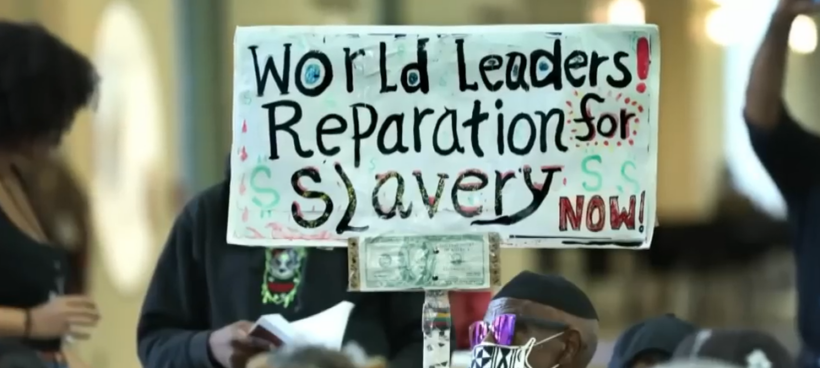140 Years After Key European Colonial Conference, Ongoing Impacts Require Urgent Action
European governments have yet to reckon with and meaningfully address the ongoing impacts of their colonial legacies affecting people of African descent on the African continent and in the diaspora, Human Rights Watch said today. November 15, 2024, is the 140th anniversary of the 1884 opening of the Berlin Africa Conference, at which 19 European countries and the US came together to organize and expand Europe’s colonial domination and exploitation across Africa.
“The Berlin Africa Conference marked a critical point in Europe’s colonial history, with its long-lasting impacts still largely unaddressed by responsible states and other actors,” said Almaz Teffera, researcher on racism in Europe at Human Rights Watch. “The passage of so many years has not ended the need for European governments to address their colonial legacies and to create a victim-centered reparations processes grounded in international human rights law with meaningful participation of affected communities.”
In light of this significant anniversary, on November 15, Dekoloniale, a German decolonial project collective, will organize a counter-version of the original conference, the Dekoloniale Berlin Africa Conference. Unlike the original conference, which excluded Africans, it will bring together Africans and people of African descent who continue to be affected by the legacy of European colonialism to reflect on the history of the Berlin Africa Conference and its lasting impact today.
In an effort to give voice to the formerly colonized, a diverse group of 19 expert delegates, both from Africa and its global diaspora, will share their perspectives on how to address the many ongoing and structural impacts of colonialism. Among them are Alice Nkom, a Cameroonian lawyer and human rights defender; Gary Younge, an award-winning UK author, broadcaster and professor of sociology; and Awet Tesfaiesus, a lawyer and German Green parliament member.
In November 2023, the African Union organized a conference in Accra at which delegates adopted a proclamation that called for reparations to Africans both on the continent and in the diaspora as an acknowledgment of the profound harm caused by Europe’s colonialism, enslavement, and the slave trade. The proclamation also declared 2025 the year for “Justice for Africa Through Reparations,” which the 37th African Union Summit in 2024 confirmed. The African Union and its member states should meaningfully consult with affected communities and center on them in those efforts, Human Rights Watch said.
At the European Union level, some members of the European Parliament proposed a draft resolution on reparatory justice and sustainable development, acknowledging the lasting impacts of European colonialism on racial inequities in the world. The resolution was circulated at the end of 2023 but never made it to a vote before the European Parliament elections in June 2024.
The UK parliament’s All-Party Parliamentary Group for Afrikan Reparations, which Labour member Bell Ribeiro-Addy chairs, has also grappled with the question of reparations to redress the legacies of African enslavement and colonialism. Ribeiro-Addy will give a welcoming speech at the Dekoloniale Berlin Africa Conference.
The 19 expert delegates at the Dekoloniale Berlin Africa Conference will call on European parliament members, policymakers, and others to take urgent action on a 10-point list of demands that they will prepare ahead of the conference.
In the framework of this conference, Human Rights Watch, together with Amnesty International and African Futures Lab, will organize a workshop at which community members, civil society, academics, and activists will come together to share struggles and experiences and discuss ways to advance reparations.
“European governments have largely ignored and even rejected communities’ calls for reparations to address Europe’s historic legacies,” Teffera said. “European leaders should understand that addressing the legacies of their states is not a choice but an obligation under international human rights law.”






